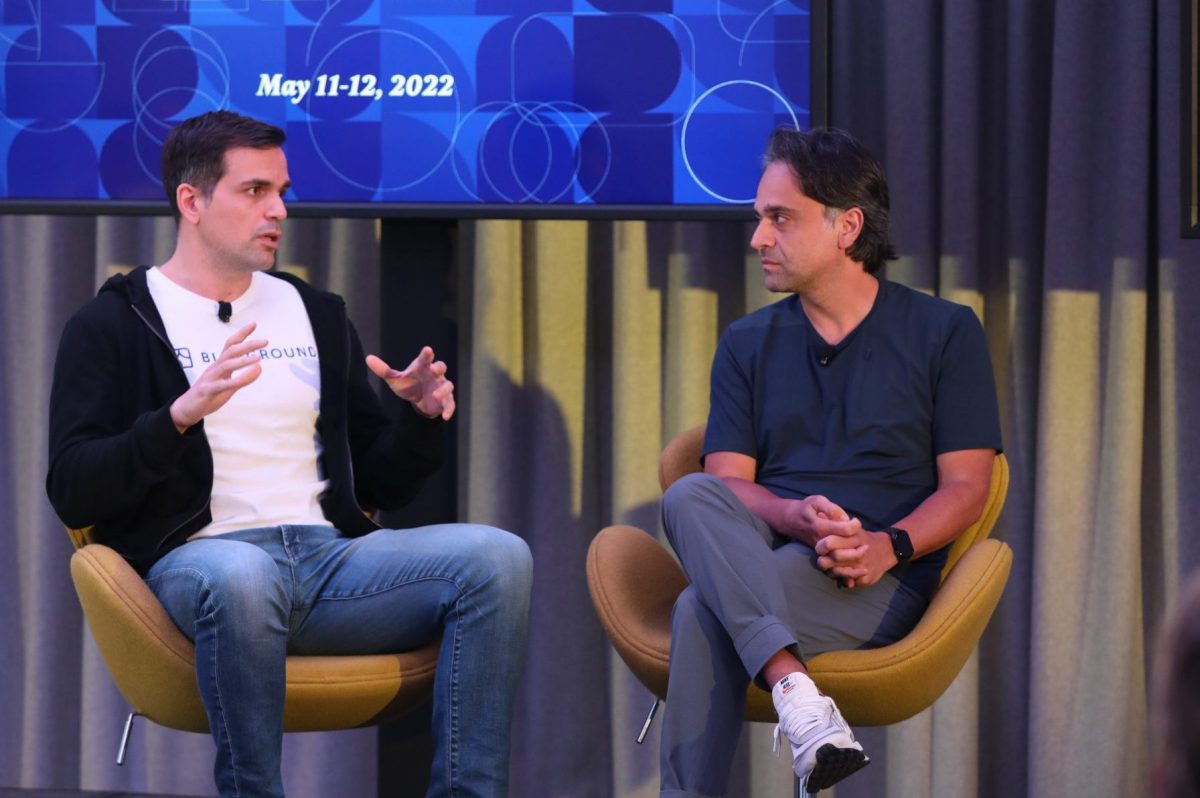Skift Take
Flexibility and technology are key in delivering the innovative experiences today’s travelers are seeking.
The college gap year will become a “remote year” if Sam Khazary has anything to do with it. Now that virtual learning is more prevalent than ever before, Selina’s senior vice president of global corporate development sees new opportunities to redefine “studying abroad” with a 12-month “remote year” passport to hop among Selina’s culturally immersive hostel/hotel/coworking spaces.
Khazary is not alone in appealing to the next generation of digital nomads, a Skift panel found on Wednesday. He was joined by Alex Chatzieleftheriou, CEO and co-founder of Blueground, to share their vision for “How Shifts in Lifestyle and Work Will Reshape Hospitality.” Chatzieleftheriou recalled that his first job out of university put him on the road for stretches where he was often looking for furnished apartments. Enter Blueground, a proptech startup offering turnkey, long-term apartment rentals globally.
“I’ve never owned a single piece of furniture in my life,” he said. “There are more people that want to have this asset-light lifestyle. They want to be able to move more freely, and for them, the ultimate currency is time.”
Khazary agreed, saying the average Selina guest is toting around a MacBook Air and not much else – except, perhaps, a smoothie or acai bowl from shared kitchens. “Staying in a fancy room is, I think, yesterday’s news. You know, people still like that stuff. But the [traveler preference] has sort of shifted. It’s about experience,” he said. The average Selina customer is less high-maintenance and more into social connectivity than lavish marble floors, for instance, said the senior vice president.
Flexibility – among both guests and business models – was among the themes discussed, along with proprietary technology to support differentiated business models. Blueground introduced its own pass during the pandemic to also offer customers the freedom to move from location to location. Another new feature allows renters to freeze their lease, so if they want to take a month off to travel, they don’t have to pay for both a hotel room and Blueground rental. “We’re very excited about this feature, because it allows customers even more flexibility – and it’s giving them something they asked us to do,” said Chatzieleftheriou.
Selina is able to transition its inventory easily, for instance, as 25 to 30 percent of its inventory is shared or flexible. When hotels aren’t full, Selina also offers Work x Stay residencies, an exchange program for artists and musicians to stay for free, for instance, while influencing the on-site culture.
As for corporate culture, both brands say they’ve prioritized investing in technology to grow the business. Selina leases its properties, which allows the brand to allocate its capital strategically – especially in building its own property management system, said Khazary.
At Blueground, Chatzieleftheriou plans to double a team of 60 developers who’ve built a booking engine, a customer-facing mobile app with functionality to extend a stay or ask for cleaning and maintenance, and a proprietary dynamic pricing system. With a 30-day-plus booking window “there was no software out there to do so,” he said. “We build all of that, and that’s kind of really what’s driving our growth and our profitability,” he said.
Have a confidential tip for Skift? Get in touch
Tags: digital nomads, future of lodging, hospitality, hotels, lifestyle, lifestyle hotels, lodging, selina
